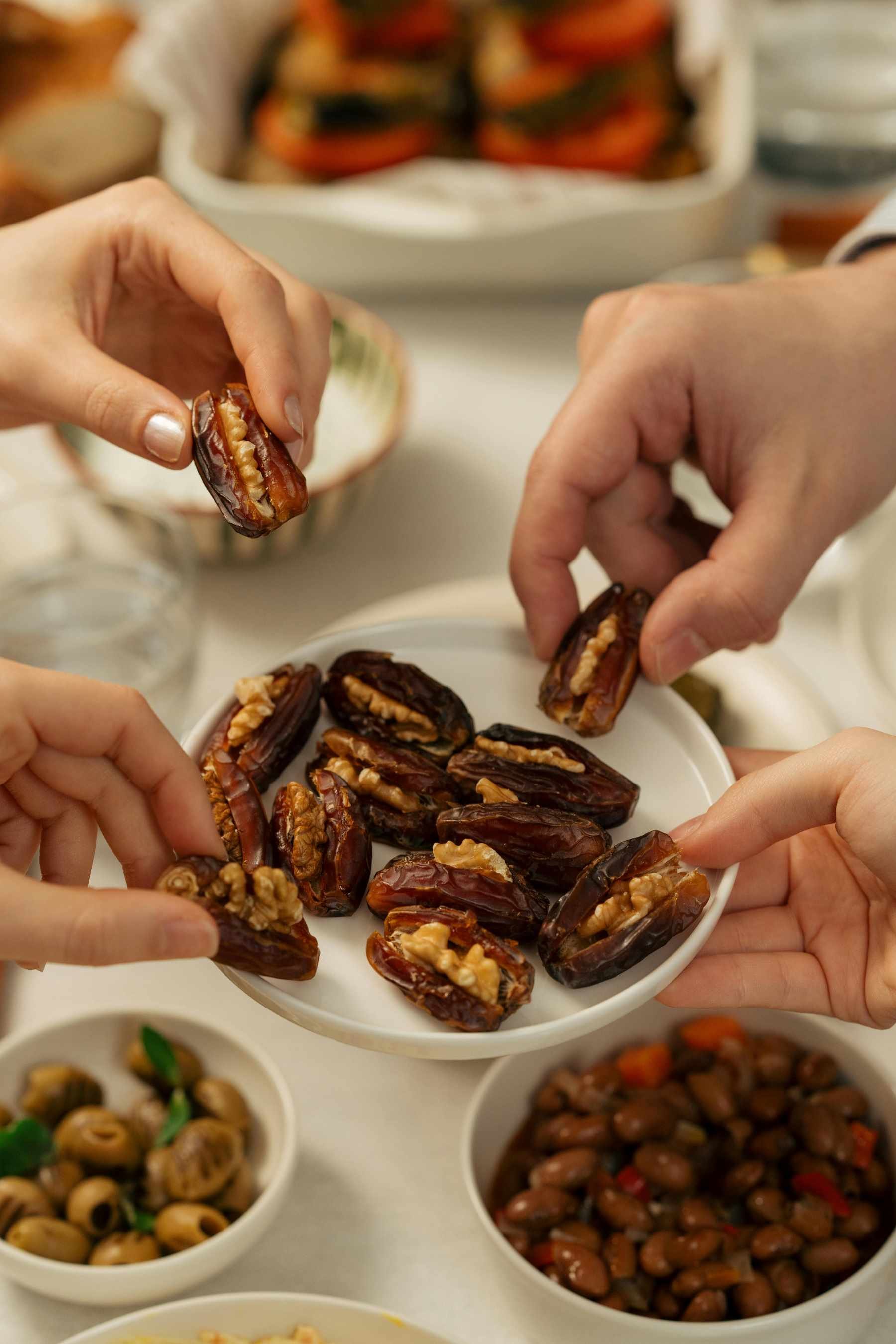Benefits of Eating Dates In Late-Term Pregnancy
As you approach the final weeks of pregnancy, you may be looking for natural ways to support a smoother labour. One simple yet powerful addition to your diet is dates. Research suggests that consuming dates in late-term pregnancy may improve cervical ripening, reduce the need for medical interventions, and support a shorter first stage of labour. Let’s explore the benefits of dates for pregnancy and how to incorporate them into your routine.
How Do Dates Support Labour?
Dates are rich in natural sugars, fibre, and essential nutrients, making them an excellent energy source. More importantly, studies indicate that their consumption in the final weeks of pregnancy can positively influence labour outcomes.
1. Improved Cervical Ripening and Labour Progression
A study published in BMC Pregnancy and Childbirth (2024) found that consuming dates in the last four weeks of pregnancy significantly improved cervical ripening, reducing the need for labour induction (Al-Kuran et al., 2024). Cervical ripening is a crucial step in preparing for childbirth, as it helps the cervix soften, thin out, and dilate more efficiently.
2. Reduced Need for Medical Induction
A meta-analysis published in Obstetrics & Gynecology (2019) reviewed multiple studies and concluded that date consumption was associated with a reduced need for medical induction and augmentation of labour (Rafat et al., 2019). Women who ate dates regularly were more likely to experience spontaneous labour onset compared to those who did not.
3. Shorter First Stage of Labour
A separate clinical trial published in The Journal of Midwifery & Reproductive Health (2017) found that women who consumed dates had a significantly shorter first stage of labour than those who did not (Kordi et al., 2017). The first stage of labour includes the early and active phases, during which the cervix dilates from 0 to 10 cm. A shorter first stage may lead to a more efficient and less exhausting labour experience.
How Many Dates Should You Eat?
Research suggests that consuming 60-80 grams of dates (approximately 4-6 Medjool dates) daily from 36 weeks of pregnancy may be beneficial. It is always best to discuss dietary changes with your healthcare provider to ensure they align with your individual needs.
Ways to Incorporate Dates into Your Diet
If you’re not used to eating dates regularly, here are some simple ways to enjoy them:
Snack on them whole – Eat a few dates as an energy-boosting snack.
Tahini and Chocolate Cookies - See my other blog post on how to make tahini and chocolate cookies naturally sweetened with dates.
Chocolate Coated Dates - See my recipe for heart shaped dates covered in dark chocolate (Perfect for Valentines Day).
Blend into smoothies – Combine dates with almond milk, banana, and cinnamon for a delicious pregnancy-friendly smoothie.
Add to porridge or yoghurt – Chop up dates and mix them into your breakfast for natural sweetness.
Make energy balls – Blend dates with nuts, coconut, and cacao powder for a nutrient-dense snack.
Conclusion
Dates are a natural, nutrient-rich food that may support a smoother and more efficient labour. Research indicates that they can improve cervical ripening, reduce the need for medical interventions, and shorten the first stage of labour. If you’re in your final weeks of pregnancy, incorporating dates into your diet could be a simple and effective way to support your birthing experience.
References
Al-Kuran, O., Al-Mehaisen, L., Bawadi, H., Beitawi, S., & Amarin, Z. (2024). The effect of late pregnancy consumption of date fruit on labour and delivery. BMC Pregnancy and Childbirth. https://pubmed.ncbi.nlm.nih.gov/38166785/
Rafat, R., Janghorbani, M., & Talebi, A. (2019). The effect of date fruit consumption on labour and delivery outcomes: A systematic review and meta-analysis. Obstetrics & Gynecology. https://pubmed.ncbi.nlm.nih.gov/28286995/
Kordi, M., Mohamadirizi, S., Shakeri, M. T., & Shakeri, N. (2017). The effect of late pregnancy date fruit consumption on the length of gestation and labour stages. The Journal of Midwifery & Reproductive Health. https://pubmed.ncbi.nlm.nih.gov/31331586/

